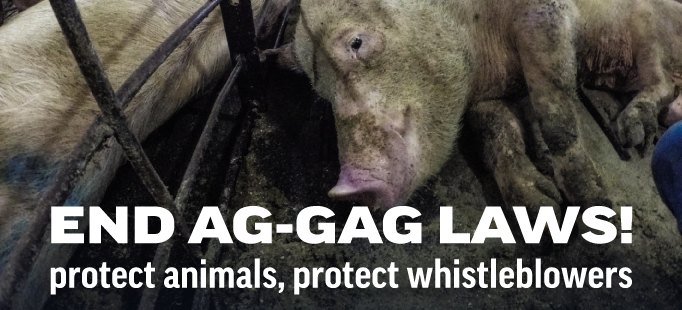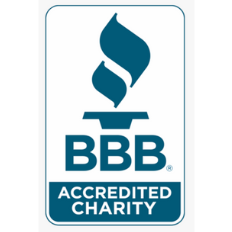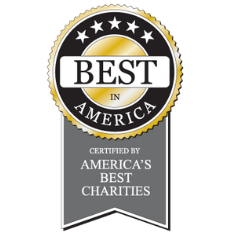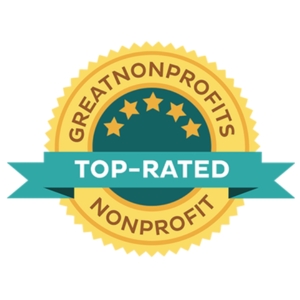COURT APPEAL FOR AG-GAG LAW IN ONTARIO, CANADA, CONCLUDES:
THE NEXT STEP IS FOR THE JUDGES TO MAKE A RULING
Update: Ontario, Canada, June 2025 - After two days of arguments in court about reinstating Ontario, Canada's former ag-gag law, Bill 156, the case adjourned. The next step is for the Judges to issue a ruling, which could be made any time.
The case was heard in the Ontario Court of Appeal on June 24 and 25, 2025. Lawyers for Animal Justice argued reinstating the ag-gag law would violate Freedom of Expression under the Canadian Charter of Rights and Freedoms. LCA commends Animal Justice for putting forward a strong argument.
Lawyers for the Ontario Attorney General argued for reinstating the ag-gag law. They claimed undercover investigators risk animal health and safety, and do not care properly for animals because their only focus is getting footage. This claim is false. Undercover investigators perform the job they were hired to do by the facility and provide animals the best possible care they can in the circumstances.
The Ontario Attorney General specifically mentioned LCA's investigations and used them as an example of what ag-gag laws are meant to stop.
Ag-Gag laws, short for agricultural gag, are aimed at stopping animal rights groups, like LCA, from conducting undercover investigations on farms and other facilities. Ag-Gag laws prevent animal advocates from revealing the conditions faced by animals on farms, in slaughterhouses, and in transit by making it a crime to take photographs or videos of these facilities. The purpose of ag-gag laws is to hide the truth from the public about how badly animals are treated by these industries.
Ag-Gag Bill 156, Security from Trespass and Food Safety Act, was first passed in Ontario in 2020. Similar to Alberta's ag-gag law of 2019, the law intended to punish whistleblowers who obtain employment under false pretenses with fines up to $25,000.
In April 2024, the Bill was repealed after a judge ruled it violated Freedom of Expression under the Canadian Charter of Rights and Freedoms. This marks the first time an ag-gag law has been overturned in Canada. LCA participated in a coalition of groups, led by Animal Justice (a Canadian animal law organization), that helped repeal Bill 156. LCA testified before the Ontario Legislature on the importance of whistleblowing in animal agriculture, the dangers of Bill 156, and highlighted LCA's undercover investigations in Ontario.
LCA also proved, though polling, that transparency in agriculture is important to Ontarians. Read the poll here.
LCA has released several undercover investigations in Ontario. In 2018, LCA released an investigation into Millbank, an Ontario mink farm. The investigation was the first to expose the horrendous suffering of mink on a Canadian fur farm and resulted in Millbank pleading guilty to failing to comply with prescribed standards of animal care. Watch the Millbank investigation here.
WHAT IS AG-GAG?
"Ag-Gag" is short for agricultural gag, and ag-gag laws refer to laws aimed at stopping the flow of information on how animals are treated in animal agriculture. These laws have been sweeping North America. Ag-Gag laws prevent animal advocates, journalists, and employees from revealing truthful information on the conditions faced by animals on farms, in slaughterhouses, and in transit by making it a crime to take photographs or videos of these facilities.
Ag-Gag laws were devised and implemented as a direct result of undercover investigations by animal rights groups, such as LCA, revealing cruel conditions. Groups that challenge ag-gag laws include animal and human rights groups, labor unions, and journalist associations. Ag-Gag laws are constantly before the courts and changing; court battles are being waged to overturn ag-gag laws under grounds they are unconstitutional and violate Freedom of Speech. For example, the oldest ag-gag law in the United States was passed in Kansas in 1990; this law was overturned in 2020.
Long before the term "ag-gag" was created, laws that protected the interests of industries that exploit animals like research facilities, farms, zoos, aquariums and rodeos and punished the activists trying to help them were enacted. At the time, there had been barely any undercover investigations of these facilities and animals were abused and tortured away from the scrutiny of the public. These dangerous laws set the precedent for what would become known as "ag-gag laws".
Undercover investigations are vital in the fight against systemic animal abuse. Exposing animal abuse should not be a crime.
FIGHTING BACK AGAINST NORTH AMERICAN AG-GAG BILLS
U.S. FEDERAL AG-GAG BILLS
2006, The Animal Enterprise Terrorism Act (AETA), S.3880, Passed - AETA was enacted into law on 11/27/2006. AETA made it a crime to cross state lines to damage or interfere with the operations of an animal enterprise, remove animals from animal enterprises, and damage or remove records from an animal enterprise. Learn more about LCA's campaign against AETA here.
1992, Animal Enterprise Protection Act, H.R. 2407 and S.544, Passed - Introduced into the House of Representatives on 8/4/1992 by Representative Stenholm (D-TX) and into the Senate by Senator Heflin (D-AL) on 3/5/1991, the Act sought to punish individuals who disrupt or damage equipment at animal facilities; rescue animals from facilities; or cause more than $10,000 damage to animal facilities with up to ten years imprisonment or life imprisonment. The law defined an "animal enterprise" as any facility that uses animals, including: fur farms, agricultural farms, slaughterhouses, zoos, aquariums, circuses, rodeos, or other "lawful competitive animal event" such as horse racing.
1989, Animal Research Facilities Protection Act (S.727), Died but language lives on - The Animal Research Facilities Protection Act passed the Senate, but it was not signed into law. Provisions of the Act were incorporated into the Farm Animal and Research Facilities Protection Act of 1990 - introduced into the Senate on 4/7/1989 by Senator Heflin (D-AL), this Act was a response to animal rights groups liberating animals from research facilities and causing damage to the facilities. The law amended the Food Security Act of 1985 to make it illegal to remove an animal from a research facility and/or damage, vandalize or steal property from a research facility, receive animals removed from a research facility,or remain in a research facility with the intent to violate the Act. Violators of the Act could be fined up to $10,000, ten years imprisonment, or both.
U.S. STATE AG-GAG BILLS
Iowa, 2021, Bill 716.7A, Passed - Iowa passed its fourth try at an ag-gag bill with the Damage and Trespass to Property Bill 716.7A. The bill makes it illegal to enter or remain on the property of a "food operation" without consent. Three other ag-gag laws passed in Iowa in 2012, 2019, and 2020 and were ruled unconstitutional.
Texas, 2021, Bill HB 1480 / SB 472, Passed - LCA campaigned against this legislation and was successful in removing problematic language that would have made whistleblowing a crime.
Texas, 2019, Bill SB 1884, Died - LCA campaigned against Bill SB 1884, which died after not being heard on the House floor.
Arkansas, 2017, Bill HB 1665, Passed - The Bill is named "An Act to Create a Cause of Action for Unauthorized Access to Another Person's Property; and for Other Purposes" and prohibits employees from making recordings (including images or sounds) without an employer's consent. It also allows employers to sue whistleblowers who uncover crimes.
Missouri, 2016, HB 1414, Vetoed - LCA campaigned against this Bill which would have worsened an existing ag-gag bill by creating an "information blackout" for factory farms and puppy mills - blocking the public from from learning about animal cruelty, toxic pollution and human health hazards like infectious diseases. Tens of thousands of people signed LCA's petition against HB 1414, and on 7/8/2016, Governor Jay Nixon vetoed this dangerous Bill.
Arkansas, 2015, HB 1774, Died - LCA successfully defeated this Bill, which would have banned audio recording between anyone in an employment relationship unless all parties consented. After LCA exposed the ag-gag bill via media and a petition, HB 1774 died quietly in Committee.
Missouri, 2012, SB 631, Passed - The Bill is named "Duty to submit video evidence of animal abuse or neglect". This quick-reporting law mandates that recordings depicting farmed animal abuse or neglect must be submitted to law enforcement within 24 hours of the recording.
Alabama, 2002, Farm Animal, Crop, and Research Facilities Protection Act, Passed - Prohibits anyone from possessing records that were obtained by way of deception and accessing property under "false pretenses".
Montana, 1991, Farm Animal and Research Facilities Protection Act, Passed - Prohibits the unauthorized entering into an animal facility to take pictures and videos of animals.
North Dakota, 1991, Animal Research Facility Damage Act, Passed - The Act makes it a Class B misdemeanor to enter an animal facility and use or attempt to use a camera, video recorder, or any other video or audio recording device. Violators face a jail term of 30 days.
Kansas, 1990, Farm Animal and Field Crop and Research Facilities Protection Act, Passed - The law made it a crime to enter an agricultural facility to take pictures or video "with the intent to damage the enterprise". The law was ruled unconstitutional in 2021.
CANADIAN FEDERAL AG-GAG BILLS
Canada, 2024, Bill C-275, Died - An amendment to the Health of Animals Act (biosecurity on farms) died in the Senate. This Bill would have made it an offence for undercover investigators and whistleblowers to enter, without lawful authority or excuse, a place in which animals are kept if doing so could result in the exposure of the animals to a disease or toxic substance that can poison them. Trespassing and poisoning animals is already illegal in Canada. Disease outbreaks on factory farms have been shown to come largely from improper sanitation procedures. Under the pretense of biosecurity, Bill C-275 seeks to hide animal abuse issues, human rights violations, and environmental concerns on factory farms. Whistleblowers could be punished with fines of up to $250,000 and two years' imprisonment.
Canada, 2021, Bill C-205, Died - The Bill was an amendment to the Health of Animals Act that would have made it an offence to enter, without lawful authority or excuse, a place in which animals are kept if doing so could result in the exposure of the animals to a disease or toxic substance that is capable of affecting or contaminating them. Penalties range from up to two years' imprisonment and fines of up to $250,000 for individuals and $500,00 for organizations. Bill C-205 died after a federal election was called in September 2021.
CANADIAN PROVINCIAL AG-GAG BILLS
Ontario, 2025, Bill 156, Currently being appealed - On June 24 & 25, 2025, Ontario's former ag-gag law, Bill 156, the Security from Trespass and Food Safety Act, was heard in the Ontario Court of Appeal in Toronto. The next step is for the Judges to make a ruling, which could be issued any time. If the appeal is successful, the ag-gag law will be reinstated.
Bill 156 was first passed in Ontario in 2020. Similar to Alberta's ag-gag law of 2019, the law intended to punish whistleblowers who obtain employment under false pretenses with fines up to $25,000.
In April 2024, the Bill was repealed after a judge ruled it violated Freedom of Expression under the Canadian Charter of Rights and Freedoms. This marked the first time an ag-gag law had been overturned in Canada. LCA participated in a coalition of groups, led by Animal Justice (a Canadian animal law organization), that helped repeal Bill 156. LCA testified before the Ontario Legislature on the importance of whistleblowing in animal agriculture, the dangers of Bill 156, and highlighted LCA's undercover investigations in Ontario.
Saskatchewan, 2021, Bill 40, Passed - The Trespass to Property Amendment Act went into effect on 1/1/2023, and criminalizes whistleblowers collecting evidence of true conditions, without consent from the property owner to do so. The Bill includes fines of up to $200,000, up to six months imprisonment and allows for "victims" of whistleblowing to sue for damages for pain and suffering and other losses, due to whistleblowing.
Manitoba, 2021, Bill 62, Although the Bill passed, problematic language that would have made whistleblowing a crime was not included in the Bill. LCA campaigned against the Animal Diseases Amendment Act which silences activists by making it illegal to document farmed animals during transport, on farms and in slaughterhouses.
Alberta, 2019, Bill 27, Passed - The Trespass Statues (Protecting Law Abiding Property Owners) Amendment Act made Alberta the first province to enact an ag-gag law in Canada. Bill 27 prohibits whistleblowers from obtaining access to property through false pretences and is punishable by fines of $10,000 for a first offence and $25,000 for subsequent offences. Groups facilitating whistleblowers could be punished of fines of up to $200,000.
HOW YOU CAN HELP
Urge your elected representatives to end ag-gag laws.
In the U.S., find your federal and state elected officials here.
In Canada, contact your provincial Member of Legislative Assembly (MLA) and provincial Minister of Agriculture.













